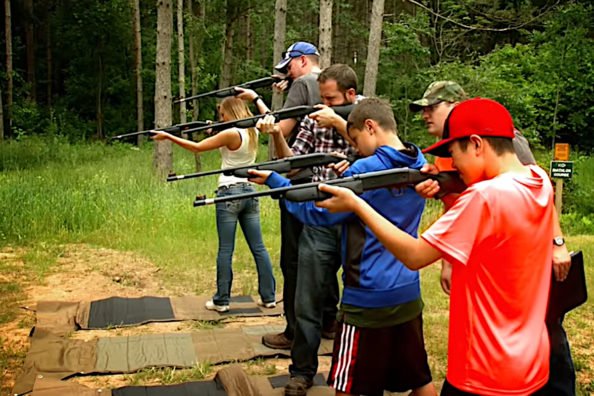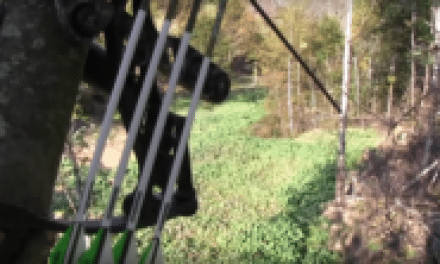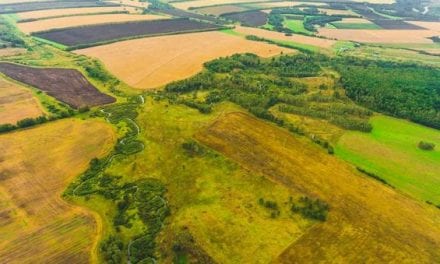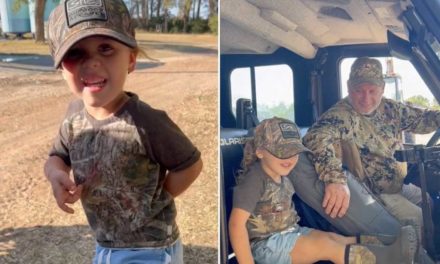
Should hunter safety courses be more accessible?
For most, it is no secret hunting is slowly but steadily declining in numbers. We saw a brief resurgence in interest during the Covid-19 pandemic, but that appears to have been short-lived. Still, one interesting new wrinkle to hunting as a direct result of coronavirus when some states decided to start allowing new hunters to complete their hunter safety courses entirely online.
The tradition in hunter safety has usually been an in-person course, but more states are offering classes that are a combination of online course and an in-person field day. Most states have moved back to this method since then.
This got us wondering if the idea of completing a hunter safety course completely online is a good idea or not. Today we will weigh the pros and cons as it relates to the future of hunting.
The Pros to going online with hunter safety.
Hunting probably has a bigger learning curve than any other outdoor activity. For totally green rookies who know nothing about hunting when just starting, the Internet is already likely going to be the first resource they consult for information. In that case, it only makes sense to make it possible for them to complete all or most of a hunter education class online. Especially for people who were not already raised in the outdoors or a hunting environment.
Taking hunter’s safety online could be the least intimidating way for prospective new hunters to absorb a lot of new information at their own pace. An in-person course is often a whirlwind designed to be completed in a day or two and some newbies may feel a bit overwhelmed as the instructor tries to get through it all. This also gives the new hunter more time to formulate questions for either a mentored hunt or an in-person field day later.
Of course, this is going to depend on how each person learns, but one could argue doing a course online gives more time for the basic rules on things like safe handling of a firearm, or the basics of treestand safety to sink in before ever hitting the field. There is also probably more room to go into detail on things like wildlife conservation and how to obtain a hunting license online than a regular hunter education course.
Another reason I like the idea of online courses is simple accessibility. I always see sportsmen and women saying we need to reach a larger, more diverse group of people and get them started in hunting. It is hard to get people in larger cities into the sport because odds are, there is not an in-person course being held nearby for them to attend. Providing these services online allows prospective hunters in the middle of the concrete jungle of places like New York City or Chicago to at least get their foot in the door on their hunting journey before ever venturing into the countryside.
Online course materials can also be updated quickly to reflect specific hunting regulation changes in a state. During my own hunter safety course back in the late 90s, some of the information in the hunter workbooks they gave us was just slightly dated. We love the idea that all the material stays fresh and relevant in an online course. We must also consider many states have since done away with minimum age requirements for hunting. For some of those younger hunters under 18 years of age, an online hunter education course may be more engaging to children growing up in the age of the Internet. If a different form of accident helps lower the number of hunting accidents, we are all for it.
Cons to online hunter safety.
One of the biggest downsides to online hunting safety is simply not being as interactive as a traditional course. Online quizzes, diagrams, and videos can only go so far in demonstrating the basics on things like crossing a fence with a firearm, or how to know your target and what is beyond it. Perhaps the most unfortunate loss is the ability for new hunters to ask questions and get immediate answers from volunteer instructors on something that is unclear.
During my own hunter safety training, I specifically recall the instructor bringing in a hunter to speak who was in a wheelchair due to a fall from a treestand. This was an extremely powerful segment of the class because it really underscored there are real consequences to ignoring the things being discussed that day. You could have heard a pin drop in the room while that hunter talked about his permanent disabilities.
Stuff like that is a major thing that is lost during an online hunter safety course. Some of the best hunter hunter education instructors either can relate their own personal experiences, or they know someone who can. Stories of what NOT to do really help to drive home the things being taught in the class and are likely to make them stick in a new hunter’s memory. I took hunter’s safety more than 20 years ago and that memory of the disabled hunter is still burned into my brain.
Of course, the biggest problem with a completely online course is the lack of a field day. It is one thing to be shown and read about proper firearms safety or archery techniques. It is another to be asked to demonstrate what you have just learned to your teacher. Just about all newbies are guaranteed to make mistakes in the field portion, which is okay because once they are corrected, they turn into life-long lessons.
My own hunter safety course also included extra helpful exercises like tracking a simulated blood trail, wildlife identification, and time at the shooting range where helpful instructors could correct students on things like proper form while handling their firearm, or how to lead a game bird with sporting clays. Things that you simply cannot get with something that takes place completely online.
One last con of an online class comes with the testing portion of a course if your hunter education program has it. For my in-person classroom course I really had to pay attention to everything, even if it wasn’t relevant to the type of hunting I was planned to do. Because there was a test at the end, and we were not allowed to use notes.
If an online course has a final exam, there is always the potential for new hunters to cheat and Google all the answers as they go through it. One could argue some people may not get a totally firm grasp of the materials before testing if they can just look up every answer.
Online courses may be the way of the future.
Like it or not, almost every state has implemented some form of online hunter safety education at this point. It is probably not going away anytime soon either. State wildlife management agencies will use any tool at their disposal to recruit more hunters. If that means making hunter education easier to access, most are probably going to go along with it as a way to meet hunter education requirements.
Personally, I like the idea of the online courses, but only if there is at least one field included where new hunters can put what they have learned to practice in a safe and controlled environment. Utilizing every bit of technology that we can to reduce the dramatic learning curve into hunting should be something more seasoned hunters should be comfortable with. Even if it does break largely with tradition. In the end, it may not matter how someone gets their hunter education certificate, just as long as more people are earning one.
Products featured on Wide Open Spaces are independently selected by our editors. However, when you buy something through our links, we may earn a commission.
For more outdoor content from Travis Smola, be sure to follow him on Twitter and check out his Geocaching and Outdoors with Travis YouTube channels.
NEXT: THE AXIS DEER AND HOW THEY’RE IMPACTING PARTS OF THE UNITED STATES
WATCH
The post Is Making Hunter Education Accessible Online a Good Idea? appeared first on Wide Open Spaces.
















